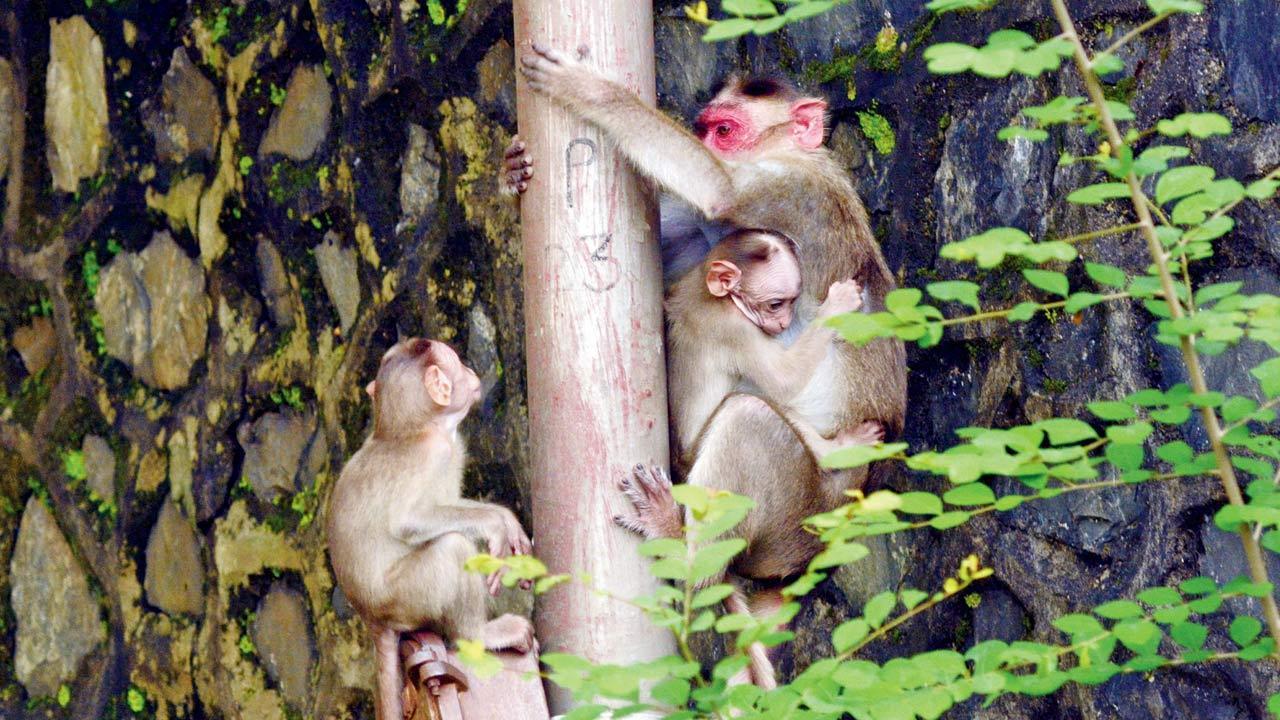RAWW founder urges authorities to initiate a state plan for human-primate conflict mitigation as soon as possible

Easy food, due to unmanaged edible waste, and people feeding these animals are the issues which have to be addressed, says RAWW founder
To address the issue of increasing human-monkey conflicts across the state, Pawan Sharma, Founder and President of Resqink Association for Wildlife Welfare (RAWW) and Honorary Wildlife Warden of Thane District has written to the Principal Chief Conservator of Forests (PCCF) – Wildlife and state’s Chief Wildlife Warden, Sunil Limaye, requesting to initiate a state plan for human-primate conflict mitigation as soon as possible.
ADVERTISEMENT
Talking to mid-day Sharma said, “With the growing conflicts between humans and primates across the state, it is very important to address the issues related to these species. I have requested PCCF to initiate a state plan for the same.” The conflicts between monkeys and humans are witnessed in both rural and urban areas, which is leading to conservation and coexistence issues.
Need for more trained staff
Sharma in his letter to PCCF has also highlighted the key issues related to urban areas like Mumbai, Thane and other cities with urban landscapes, habitats and wildlife. “Maximum conflicts are witnessed on the periphery of forests like national parks and sanctuaries, majority of which fall under the jurisdiction of the territorial wing. Easy food, due to unmanaged edible waste and people feeding these animals are the issues which have to be addressed immediately, with the corporation of those areas,” Sharma said.
There have been instances when problem animals have to be captured. For this, the NGOs are dependent on two options—setting up trap cages and tranquillisation. Currently, in the Mumbai Metropolitan Region, there are very few trap cages and there is only Sanjay Gandhi National Park (SGNP) rescue team for tranquillisation of the animals. The need of the hour is to have more trained staff so that addressing these issues become easy, he said.
Population estimation required
“Our department is also dependent on ‘private monkey rescuers’ which we need to regulate and control by checking if their methods are scientific, humane and also that they do not charge the citizens an exorbitant amount. Population estimation and study is required as soon as possible. In case of an exploding population at specific locations, we can come up with population management programmes. For this, we need to understand if there is a serious rise in population or if the groups migrate due to easy food in urban setups,” added Sharma.
Detailed SOPs for rescue
At present, there is a basic SOP for human primate rescue, which according to Sharma needs to be made detailed, focusing on capture and release protocols, especially on the release of problem animals from one location to the other. Sources from the Maharashtra forest department told mid-day that more than a hundred rescues of monkeys take place in a year in Mumbai Metropolitan Region. According to NGO RAWW, on average it does around 30-35 rescues of monkeys in a year.
100
No. of monkeys rescued in MMR in a year
 Subscribe today by clicking the link and stay updated with the latest news!" Click here!
Subscribe today by clicking the link and stay updated with the latest news!" Click here!







